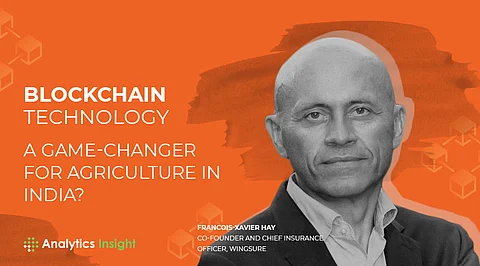

Blockchain records information with an immutable cryptographic signature that cannot be modified, hacked, or faked. This digital ledger is distributed across the entire network of computer systems on the blockchain.
Blockchain use cases in agriculture contribute to building a transparent, fair, and tamper-proof value chain and will benefit smallholder farmers.
Data-veracity: Data is often available in plenty, but reliable data is scarce. Often, data is too old, or its quality is too low to be of any value. Smart agriculture is the way forward for improving the livelihood of smallholder farmers. It requires data-driven infrastructure sourcing reliable and real-time data: crop types, growth, farming practices, climate, and market prices following stringent quality control tracks.
Distributed Data; Distributed costs: Data collection and storage is an expensive proposition if done by a single entity. Most blockchain spreads the cost evenly across the stakeholders, bringing down the cost substantially. Energy costs of proof-of-work security from an environmental standpoint are also becoming a significant concern in today's context.
Distributed Data; Distributed risks: Data can be easily tampered with if left to the ownership of a single entity. Data can be withheld or charged for as well, in this scenario. Cyber-criminality being a growing concern, decentralised blockchain can bring about a higher level of data protection than a localised one. Moreover, most blockchain security relies on a wide sharing of data, which ensures no one can tamper with it.
Food supply chains: We often eat food whose origins are unknown to us. The place of origin of food items can be ascertained by blockchain technology, helping create food supply chains, which can be trusted. It fosters assurance between producers and consumers at either end of the food chain.
Big data analysis: Data analysis and insights are valuable only if the data is in real-time and the analysis is also carried out instantaneously. With a real-time store of reliable data available, blockchain expedites the utilisation of data-driven technologies to facilitate smarter farming for multiple sets of use cases. Blockchain technology analyses data in real-time, each and every time.
Timely payments: Blockchain can contribute to faster execution and on-time payments between stakeholders when used concurrently with smart contacts, automatically activated by data changes appearing in the blockchain.
Redundancy of transaction intermediaries: In agriculture, the bane of businesses are the middlemen who eat away at the profits of the producer. However, blockchain renders intermediaries like a bank or a middleman in the agriculture sector redundant, by authorising transparent peer-to-peer transactions. Disclosure of data reduces the information asymmetry and contributes to a stronger and more liquid market.
Food supply assurance: Blockchain meets the challenge of tracking products in the wide-reaching farm-to-fork supply chain, which is a daunting issue due to the complexity of the agri-food system. It enables better management of the quality and safety of food, thus providing relief to consumers and the government authorities.
Agricultural Insurance: Agricultural and livestock production for smallholder farmers is more sensitive to weather extremes, compounded by climate change. Agricultural insurance helps strengthen the resilience of farmers facing weather-related risks. Blockchain infrastructure can speed up the insurance payout by providing timely relief post calamities.
"Whereas most technologies tend to automate workers on the periphery doing menial tasks, blockchains automate away the centre. Instead of putting the taxi driver out of a job, blockchain puts Uber out of a job and lets the taxi drivers work with the customer directly."
Using blockchain technology, Wingsure envisions creating an ecosystem among small-scale food producers, farming material suppliers, microcredit, and rural insurance partners.
Blockchain is right here at our doorstep to revolutionise farming practices in India. Are we ready to embrace it?
Francois-Xavier Hay, Co-Founder and Chief Insurance Officer, Wingsure
Join our WhatsApp Channel to get the latest news, exclusives and videos on WhatsApp
_____________
Disclaimer: Analytics Insight does not provide financial advice or guidance. Also note that the cryptocurrencies mentioned/listed on the website could potentially be scams, i.e. designed to induce you to invest financial resources that may be lost forever and not be recoverable once investments are made. You are responsible for conducting your own research (DYOR) before making any investments. Read more here.
